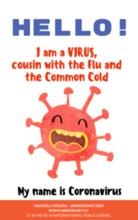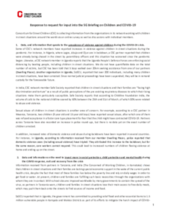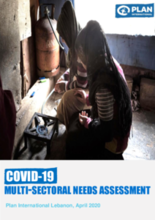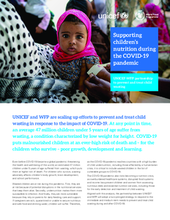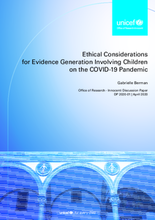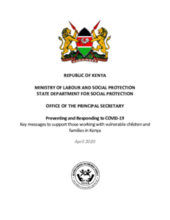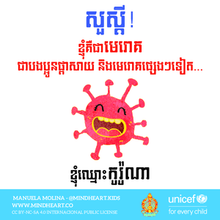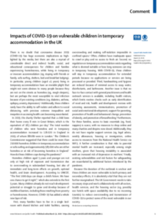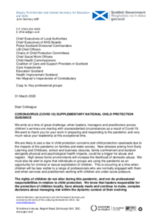This section includes resources on the response to the COVID-19 pandemic as it relates to child protection and children's care.
News on COVID-19 and Children's Care
Webinars and Events on COVID-19 Response
Displaying 521 - 530 of 756
This book is written for children to help them understand the Coronavirus.
This dashboard contains the latest data from UNICEF’s global databases that are relevant to the COVID-19 response for children. Explore country-level data by gender, residence and wealth quintile.
Consortium for Street Children (CSC) is collecting information from the organisations in its network working with children in street situations around the world via an online survey as well as discussions with individual members.
This report presents insightful findings on the effects of the COVID-19 outbreak in Lebanon, highlighting data collected on COVID-19 knowledge, health, WASH, protection, education, food security and livelihoods, shelter, movement and digital access.
This two-page brief outlines the UNICEF-WFP partnership's two-pronged strategy to respond to the immediate and medium-term needs to prevent and treat child wasting during and after COVID-19.
This paper identifies key ethical considerations when undertaking evidence generation involving children during the mitigation stage of the pandemic (emergency phase), on subject matter relating to COVID-19 once the pandemic has been contained, and once containment policy measures, including lockdowns, have been lifted (post-emergency phase).
This guidance is designed to inform child protection actors in Kenya in light of the COVID-19 crisis. It guides actions targeting, and services provided for, vulnerable children and families, including children living in institutions, children living on the streets, children with disabilities, and others.
This book is written for children (in Khmer) to help them understand the Coronavirus.
This comment from the Lancet explores the impacts of the COVID-19 crisis on children in temporary accommodation in the UK.
This guidance is for Chief Officers, professional leaders in children’s services and child protection committees, who should ensure it is taken account of within local partnerships.

